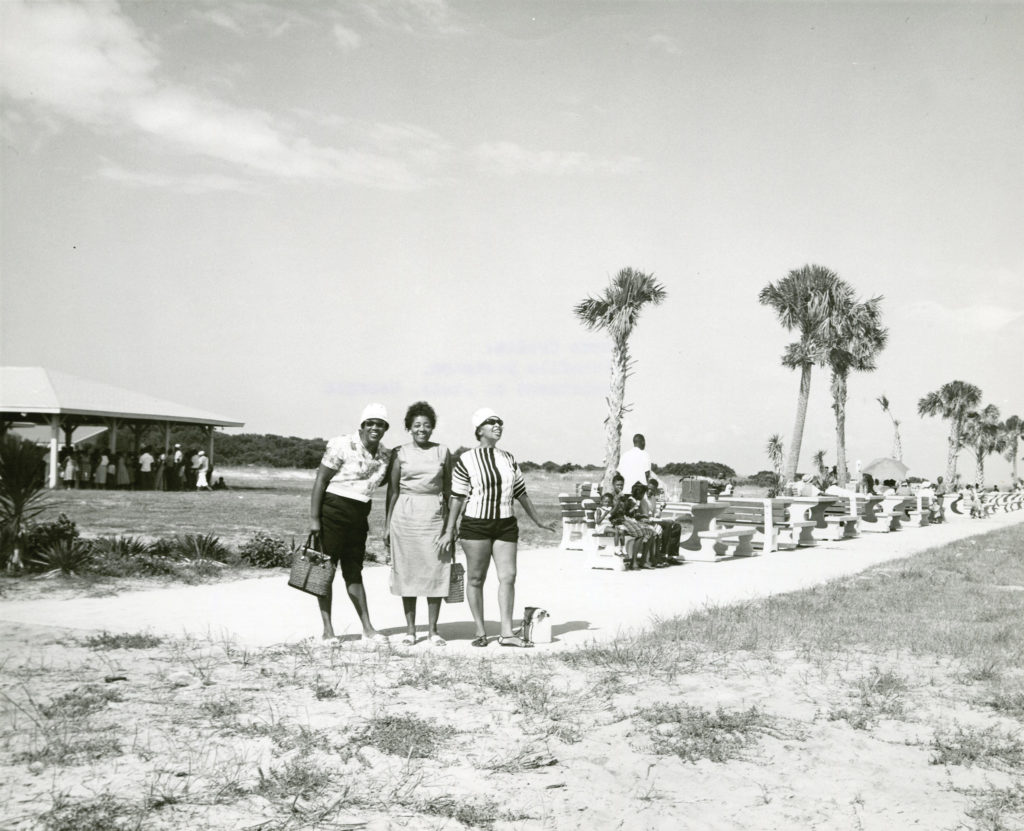Jekyll’s St. Andrews Beach was the first—and for years, only—
section of Georgia coast accessible to African Americans
By Rebecca Burns In 1948‚ Pittsburgh Post-Gazette reporter Roy Sprigle traveled undercover through the South to report on life under Jim Crow. Three thousand miles into his journey‚ he reached Brunswick‚ only to learn that “along all the hundred miles of Georgia’s coast line with its scores of beautiful island and shore beaches‚ there’s not a single foot where a Negro can stick a toe in salt water.” Indeed‚ the fine for swimming in the ocean was $50. Not long before Sprigle’s arrival‚ three young women were arrested for simply trying to swim at a Glynn County beach. “Georgia bought the fabulous Jekyll Island‚ playground of the Rockefellers‚ Whitneys and Bakers for $800‚000. It will build a great seashore resort for the citizens of Georgia‚” wrote Sprigle. “But there will be no accommodations for Negroes‚ despite pleas by most of the Negro organizations in the state.” Two years after Sprigle’s visit‚ black residents of Brunswick petitioned the state for access‚ and in 1950‚ a portion of southern Jekyll‚ renamed St. Andrews Beach‚ was designated for blacks‚ becoming the first public beach in Georgia accessible to African Americans. Five years later‚ the state erected the “Colored Beach House,” which now stands as a historic landmark at Camp Jekyll. As Georgia’s only beach available to blacks‚ St. Andrews developed a following of loyal vacationers and‚ with construction of the Dolphin Club and Motor Hotel‚ became a prime spot on the comedy and music “Chitlin’ Circuit‚” hosting acts such as Percy Sledge and Millie Jackson. To host a convention of black dentists‚ the state erected South Beach Auditorium in 1960. It was not until 1964‚ more than a decade after the opening of St. Andrews Beach‚ that the passage of the Civil Rights Act mandated all of Jekyll’s beaches be integrated.Mosaic
Oral history exhibits at Mosaic‚ the Jekyll Island Museum‚ recount memories of Jekyll during the segregation era. One features Jim Bacote‚ who as a teenager testified in the 1964 class action lawsuit that led to the integration of Georgia’s state facilities.
